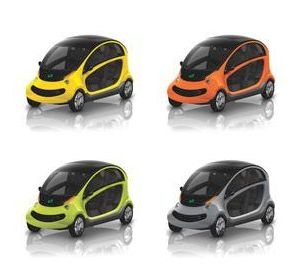 The British government is to follow the lead of other countries including China and America and offer rebates of up to £5,000 to drivers who buy electric cars.
The British government is to follow the lead of other countries including China and America and offer rebates of up to £5,000 to drivers who buy electric cars.
The subsidy will be available to those buying cars that run entirely on electricity. The scheme, which would be enforced by setting a ceiling for the amount of carbon dioxide a car emits, will become operational in 2011.
Speaking to the The Guardian newspaper, the Transport Secretary Geoff Hoon said: “What we’ve got to get people used to is the idea that electric cars will become quite normal, quite usual.”
“That people will have one, that it won’t be exceptional and, without being unkind to existing electric vehicles, they won’t be slightly odd, they will be cars that conform to appropriate safety standards and we can use on an everyday basis.”
He added: “I accept that, for most consumers, what drives their decision to buy a new car is generally the reduction in the cost of fuel rather than their concern about carbon emissions. But there are significant numbers of people, and those numbers are growing every day, who are concerned about the impact of carbon on the environment.”
The annual Social Trends study published by the Office for National Statistics this week revealed that of those questioned, 53 per cent said that climate change concerned them.
What will it take for people to drive electric cars?
The electric car market is tiny and those cars currently on offer simply do not have the performance or range to compete with petrol and diesel cars.
Will there be a wholesale change to electric cars?
A spokesperson for the Environmental Transport Association (ETA) said: “No one knows for certain. Petrol and diesel-engined cars become ever more efficient; the most recent Smart diesel car returns over 85mpg and we do not yet have a mass-produced electric car on the market with a performance or range to rival it. Even when the a suitable range of electric vehicles exists, it is questionable whether a subsidy alone will bring about the wholesale change to electric cars that the government desires.”
Unfortunately for most drivers, electric and hybrid cars remain an expensive and impractical alternative to petrol and diesel models.
How could a carbon tax help electric cars?
A wholesale move to electric cars will require more than a simple subsidy. The ETA believes a tax on carbon would make them far more attractive an option.
 At the moment producing electricity from coal costs around 3p a kilowatt per hour (3p/kW/h). This is cheaper than burning natural gas or oil and that is why most power stations still use coal to generate electricity. Renewables cannot produce electricity this cheaply as electricity from wind turbines costs 4p/kW/h and the latest solar technology also costs 4p/kW/h.
At the moment producing electricity from coal costs around 3p a kilowatt per hour (3p/kW/h). This is cheaper than burning natural gas or oil and that is why most power stations still use coal to generate electricity. Renewables cannot produce electricity this cheaply as electricity from wind turbines costs 4p/kW/h and the latest solar technology also costs 4p/kW/h.
However, once the Carbon Tax Commission sets its rate for a carbon tax the cost of producing electricity from coal fired power stations would cost more than renewables. From that moment on almost all new “power stations” in this country would be wind or solar based.
The nature of the national grid would change from the current hub and spokes system to a peer-to-peer network system. This would radically reduce the cost of power supply.
This in turn would enable cars to run on electricity (currently if all cars ran on electricity the national grid would struggle to cope). This could allow cities (should they have wish to do so) to ban all vehicles that were not zero emission from all or part of their cities. The first bans could be on days and in places where local pollution is above World Health Organisation limits.
This will encourage the motor industry to build cars that can perform 100-mile round trips without refuelling, and filling stations to offer rapid electrical charging.

This could all happen extraordinarily quickly – faster than past changes in informatics – from computers to telephones and high definition televisions. Faster than you can say “iPod” or “mobile phone”. The reason is that the informatics industry is big – a few hundred billion pounds a year, but the energy industry is humungous – around three trillion pounds a year and demand for energy is growing rapidly. So the opportunity for renewables is mind boggling – as soon as the price it right.
The ETA is judged to be an ethical company by The Good Shopping Guide…and it’s not just cycle insurance that we offer. We provide home insurance, breakdown cover and mobility scooter cover – all while putting concern for the environment at the heart of all we do.
0 Comments View now